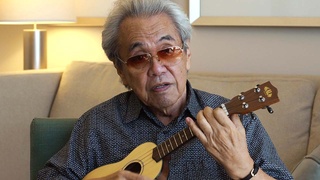Interviews
Impact of Pearl Harbor on her family
I can remember that term, Pearl Harbor, because I didn’t know what it was. I’m trying to put myself into that mind of a child of what was happening. A lot of it was confusing, a lot of confusion, wondered where my dad was. It was pretty harrowing when I think of it now because our family…we were a very tight family. Family was everything and my father was such the powerful center of it and then for him to just suddenly be taken away was very disconcerting and, you know, terrifying because he was a very strong and outspoken man. He could speak English very well. He spoke with a British accent because he studied in Japan where they spoke with a British accent. He was a very proud person so, you know, you felt safe with him and then suddenly he’s gone.
Date: December 27, 2005
Location: California, US
Interviewer: John Esaki
Contributed by: Watase Media Arts Center, Japanese American National Museum
Explore More Videos

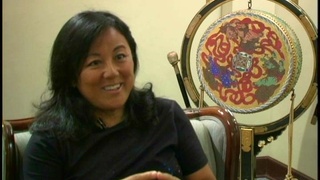

Japanese language education for children
Professor of Law, University of Sao Paulo, Lawyer, Translator (b. 1948)

Speaking about his wife
(1928 - 2008) Drafted into both the Japanese Imperial Army and the U.S. Army.
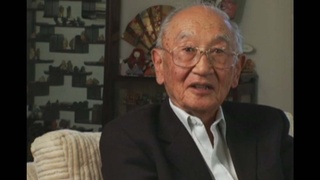
Growing up with both Japanese and American influences
(1919-2020) Member of the 1800th Engineering Battalion. Promoted Japan-U.S. trade while working for Honda's export division.

Strictly American, but sympathize with Japan
(1919-2020) Member of the 1800th Engineering Battalion. Promoted Japan-U.S. trade while working for Honda's export division.

My daughter’s identity (Japanese)
(b. 1979) Sansei Nikkei Brazilian who lives in Oizumi-machi in Gunma prefecture. He runs his own design studio.

What I wanted to pass down to my children (Japanese)
(1928 - 2008) Drafted into both the Japanese Imperial Army and the U.S. Army.

Father's Service in WWII
(b. 1930) Half Japanese and grew up in both Japan and the United States.

Moving to Upland Post-Camp
(b. 1930) Half Japanese and grew up in both Japan and the United States.
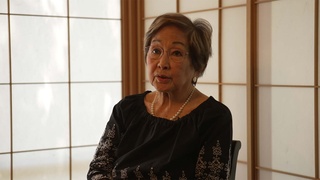
Backstory of Parents
(b. 1939) a businesswoman whose family volunterily moved to Salt Lake City in Utah during the war.
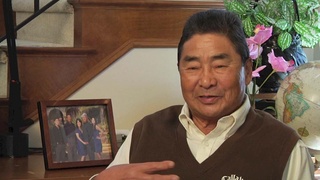

Kindergarten in Davao, Philippines
(b. 1938) Philipines-born hikiagesha who later migrated to the United States.

Family was shipped back to Japan after the war
(b. 1938) Philipines-born hikiagesha who later migrated to the United States.
